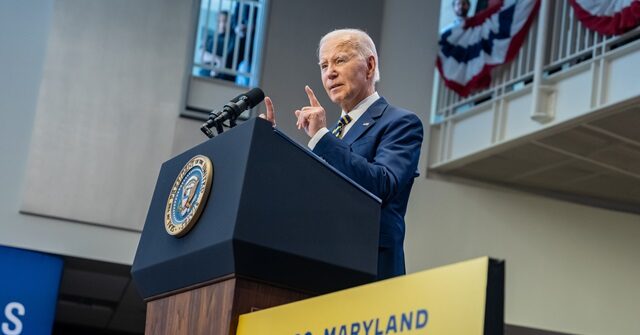On Monday’s “CNN This Morning,” Rep. Glenn Ivey (D-MD) offered insights into the perception of the U.S. economy as he discussed the upcoming 2024 election. He asserted that while the overall economy is performing well and is admired globally, many individuals in the U.S. do not feel the same positivity in their everyday lives. This disconnection between macroeconomic indicators and personal economic experiences can create challenges in political messaging. Ivey emphasized that many Americans are struggling to recognize the immediate benefits of government actions and legislation, leading to a misunderstanding of economic conditions and the support offered by different political parties.
Ivey pointed out that Democrats have struggled with communication surrounding the economy, frequently highlighting broader economic successes without adequately addressing how these developments affect individuals on a personal level. He criticized the party for spending too much time on macroeconomic discussions while neglecting to connect those discussions to the lived experiences of average Americans—people whose everyday challenges are often overshadowed by the perceived progress at the national level. The focus on national statistics without relatable context can alienate constituents and drive them toward alternative political figures who appear more attuned to their struggles.
As Ivey analyzed the political landscape, he expressed concern that this failure to communicate effectively contributed to voters turning towards Donald Trump and the Republican Party. He suggested that when individuals don’t feel the benefits of economic improvements in their daily lives, they become more susceptible to alternative narratives that promise change or a better understanding of their situation. This shift highlights the importance of clear and relatable messaging in politics, especially when the party in power believes they have made positive change but fails to demonstrate it in a relatable way to the voters.
One key aspect of the Democrats’ communication problem, according to Ivey, is the lack of clarity surrounding the implications of major legislation passed during their tenure. For example, he mentioned landmark initiatives like the American Rescue Plan Act (ARPA) and infrastructure projects that are set to yield benefits in the coming years. Many citizens are unaware of how these actions will impact them personally, as they might only remember the acronyms or the overarching goals without understanding the specifics of the benefits. Ivey acknowledged that some achievements, such as lowering prescription drug costs, do resonate more clearly; however, he stressed that the overall narrative has not reached most voters effectively.
Moreover, Ivey underscored that the moral obligation of the Democratic Party is to ensure that people understand the government’s role in improving their lives. The perceived disconnect between citizens and legislative efforts can lead to feelings of neglect or frustration, causing individuals to seek alternate voices in politics. A revitalized focus on grassroots efforts and relatable communications could bridge this gap, allowing constituents to recognize the value and significance of governmental actions and policies that are designed to support and uplift them.
In summary, Rep. Glenn Ivey urged the Democratic Party to rethink its communication strategies in the lead-up to the 2024 election. By concentrating on personal stories and the real-world implications of economic policies, Democrats can strive to align their messaging with the daily realities facing American families. Ivey’s reflections highlight the importance of addressing the disconnect between macroeconomic success and individual experiences, and the need for politicians to communicate their achievements in ways that resonate with the people they aim to serve, fostering a more informed and engaged electorate.

